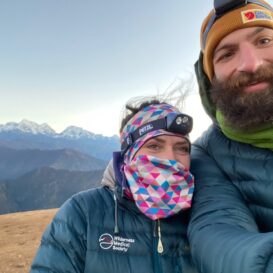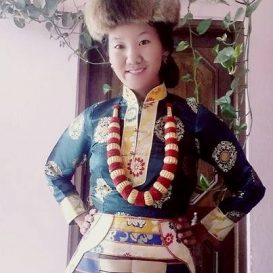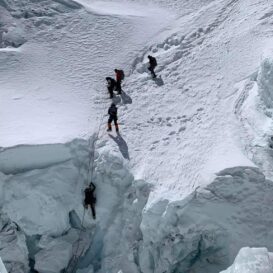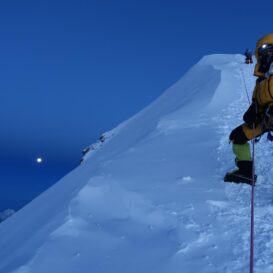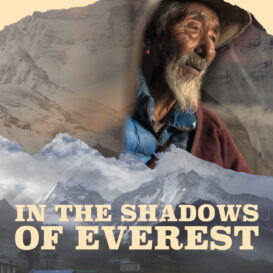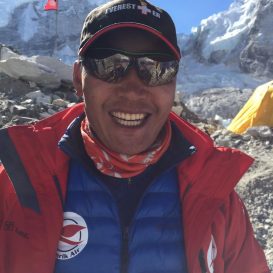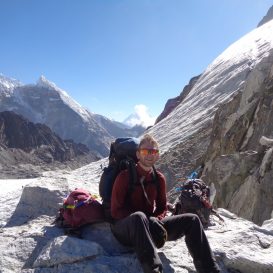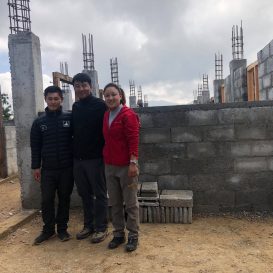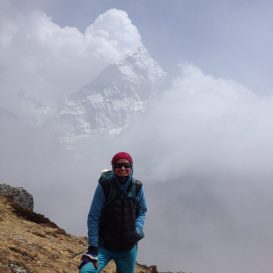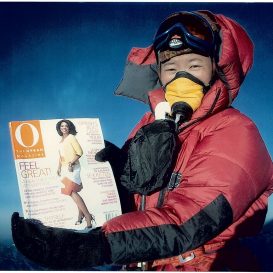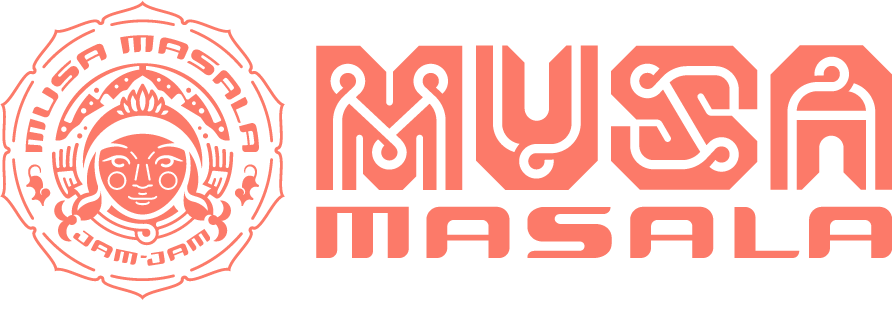May is traditionally the ideal weather window month on Mt Everest—a short period when getting to the top is not impeded by jet streams or monsoon season. This year, COVID-19 has closed the mountain for climbing on the Nepali side, and only a select group of Chinese climbers are going from Tibet. We here at Musa Masala thought this would be a great time to talk with our friend Pem Dorjee Sherpa. Pem is instrumental for so many quality changes to his home village of Chyangba in Nepal. He is on the Board of Directors for the Himalayan Yokpu Foundation, which is constructing the Wongchhu Sherpa Memorial Hospital. We will talk about that, but for now, let’s get the lowdown on how he and his wife, Moni, were married on the summit of Mt Everest on May 30th, 2005!
Thanks, Pem, for taking the time to talk to us. You now live in Ann Arbor, Michigan, and you and Moni run The Himalayan Bazaar, a fair trade store, and The Everest Sherpa Restaurant. You also run Imperial Expedition, a travel and adventure company. We were going to see you for the opening of the Wongchhu Sherpa Memorial Hospital in October but now due to COVID-19 and the travel restrictions we have postponed the opening. So let’s talk about Everest a bit. How did you get into mountaineering?
When I was 12, I left my home village of Chyangba and went to work in Namche Bazaar in a tea house. While I was working there, I saw all the climbers and trekkers coming through, so I decided to become a climbing guide.
I moved to Kathmandu in 1999 and after around a year I went to live at Wongchhu Sherpa’s house. He was like our parent in Kathmandu at the time. We would work for Wongchhu during the trekking and climbing season then come back to Kathmandu and take English classes and climbing courses. Working for Wongchhu was not easy. He was very competitive. He wanted to win and was a very hard-working person. That’s why he was so successful in the climbing and trekking industry. Anyone who could not keep up with him was out! Wongchhu had God-given talent and great leadership skills. He would manage any kind of problem. We miss him for sure.
So you met Moni at an advanced mountaineering course?
Yes, I first climbed Mt Everest in 2004. I met Moni Mulepati at a climbing course and later an expedition formed, The Rotary Centennial Everest Expedition. We joined the expedition to put the Rotary flag on the summit. Then I had an idea. I am a Buddhist and Moni is Hindu. Our religions do not make for an easy way to get married. We decided to get married on the summit of Mt Everest, where no one could say anything! So we secretly planned on packing the things we would need for a wedding, without telling anyone.

What was it like climbing and knowing how important it was for both of you to reach the summit? Were you nervous?
Climbing is part of my job, so there is not much excitement or anxiety, but on this expedition I am with my loved one and we both had to get on the summit at the same time so we can fulfill our dream. On top, we were so happy. We exchanged the red powder for the forehead and garlands we had brought from Kathmandu. There were 8-10 climbers including our team on the summit and were they surprised!
We only spent a little more than 10-15 minutes on the summit, then everyone rushed to get down. It was the first wedding on top of Mt Everest!

It was a big sensation when you returned to Kathmandu. You are now in the Guinness Book of World Records. We like the quote you gave to the BBC: “We want to give all Nepali people the message that people are people so there is no problem about caste.”
Our family was shocked about hearing the wedding news. But they were happy then and are now happy.
This brought you to the US later, in 2005. You noticed all the interest in Nepal and you started your own trekking company, which Wongchhu Sherpa helped you with. Now you have been in Ann Arbor, Michigan since 2011. You have Imperial Expeditions, which does two treks a year to Nepal. You have been so active with Chyangba and the Solu Khumbu, can you tell us a bit about that?
I spent my first 12 years in Chyangba Village. Because there was no clean water, power or a nearby school, it was not an easy life for anyone in the village. My sisters were not able to go to school because of all the housework they had to do—collecting water, firewood, and other duties. After I came to the US, I started talking to friends about problems in the village, and with the help of the Himalayan Yokpu Foundation, Education Elevated, Tserings Fund and the Nepal Relief fund, so many good things have now come to the village. We now have clean water, power and a school. I hope we have a good hospital soon.

We are hoping the hospital will open soon! We met Pem at the hospital construction site in 2018 and we are so happy to share his story with you. See the TEDx talk he gave in Big Sky, Montana, here. It is so inspiring to work with him toward the goal of bringing healthcare to this underserved area.
Thanks and best wishes, Pem, Moni and your two beautiful daughters, Pelzum and Mezel.



